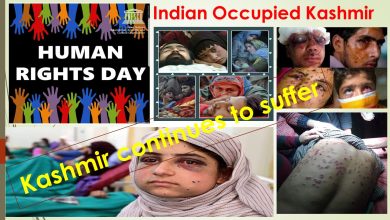RAW GOES ROGUE, GLOBALLY
An Indian minister’s confession and a Guardian expose have confirmed what spies round the world already knew
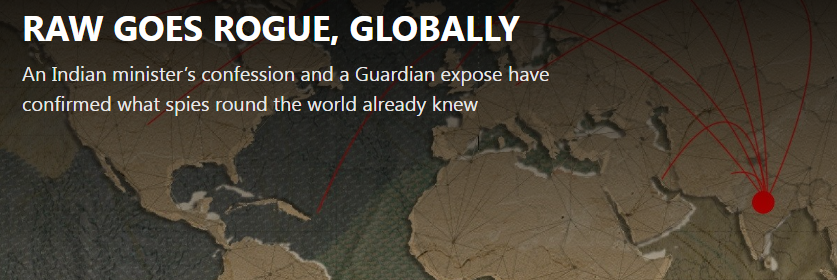 NAVEED HUSSAIN
NAVEED HUSSAIN
An open secret has been revealed. This perfect oxymoron perfectly sums up what India’s security czar confirmed earlier this month. Rajnath Singh confessed to what many in the global intelligence community already knew: India operates death squads on foreign soil.
“If any terrorist tries to disturb India, he will be given a fitting reply. If he escapes to Pakistan we will go there to kill him,” Singh said in an interview to an Indian TV channel. Prime Minister Narendra Modi has made it clear this policy is ‘right’ and that “India has the capability to do so,” he added in a smug tone.
This damning confession followed an even more damning report in Britain’s Guardian newspaper, which claimed the Indian government has orchestrated as many as 20 extrajudicial killings in Pakistan since 2020. India’s foreign ministry was quick to dismiss the exposé as “false and malicious propaganda”, but Singh’s confession defies this denial.
 It’s the first time a senior government minister has publicly acknowledged what Delhi has been hiding all along. Singh has confirmed the existence of an officially sanctioned Indian policy of extrajudicial murder of political dissidents and critics on foreign soil.
It’s the first time a senior government minister has publicly acknowledged what Delhi has been hiding all along. Singh has confirmed the existence of an officially sanctioned Indian policy of extrajudicial murder of political dissidents and critics on foreign soil.
Singh’s comment was intended for Pakistan. A scathing response was in order. And it followed hard on its heels. “India’s assertion of its preparedness to extrajudicially execute more civilians, arbitrarily pronounced as ‘terrorists,’ inside Pakistan constitutes a clear admission of culpability,” said a Pakistani foreign ministry statement.
Singh’s claims endorsed Islamabad’s “irrefutable evidence” linking Delhi to a campaign of “extrajudicial and transnational assassinations” on Pakistani soil, it stated before cautioning that the “myopic and irresponsible behavior” of Indian officials could jeopardise regional peace.
Interestingly, before Singh’s confession, Modi also bragged about his government’s transnational killing policy in an election speech. “We pursue terrorists in their home and kill them there,” said Modi, who was on the campaign trail for the 2024 elections. Modi didn’t explain his cryptic reference, but he was believed to be referring to Pakistan.
Perilous gamble
The chest-thumping by Modi and Singh is understandable. It is election season in India and the ruling Bharatiya Janata Party (BJP) has consistently peddled a national security and terrorism narrative, with a particular focus on Pakistan, to whip up a hyper-nationalistic frenzy to win elections.
“The timing [of the Guardian exposé] is notable, as it helps the BJP pre-election — the report gives the party something to push back on, bolstering its nationalistic bonafides… it also makes the BJP look bold and strong in pursuing threats abroad, a narrative that the Indian government has long sought to project,” says Michael Kugelman, the director of the Wilson Center’s South Asia Institute.
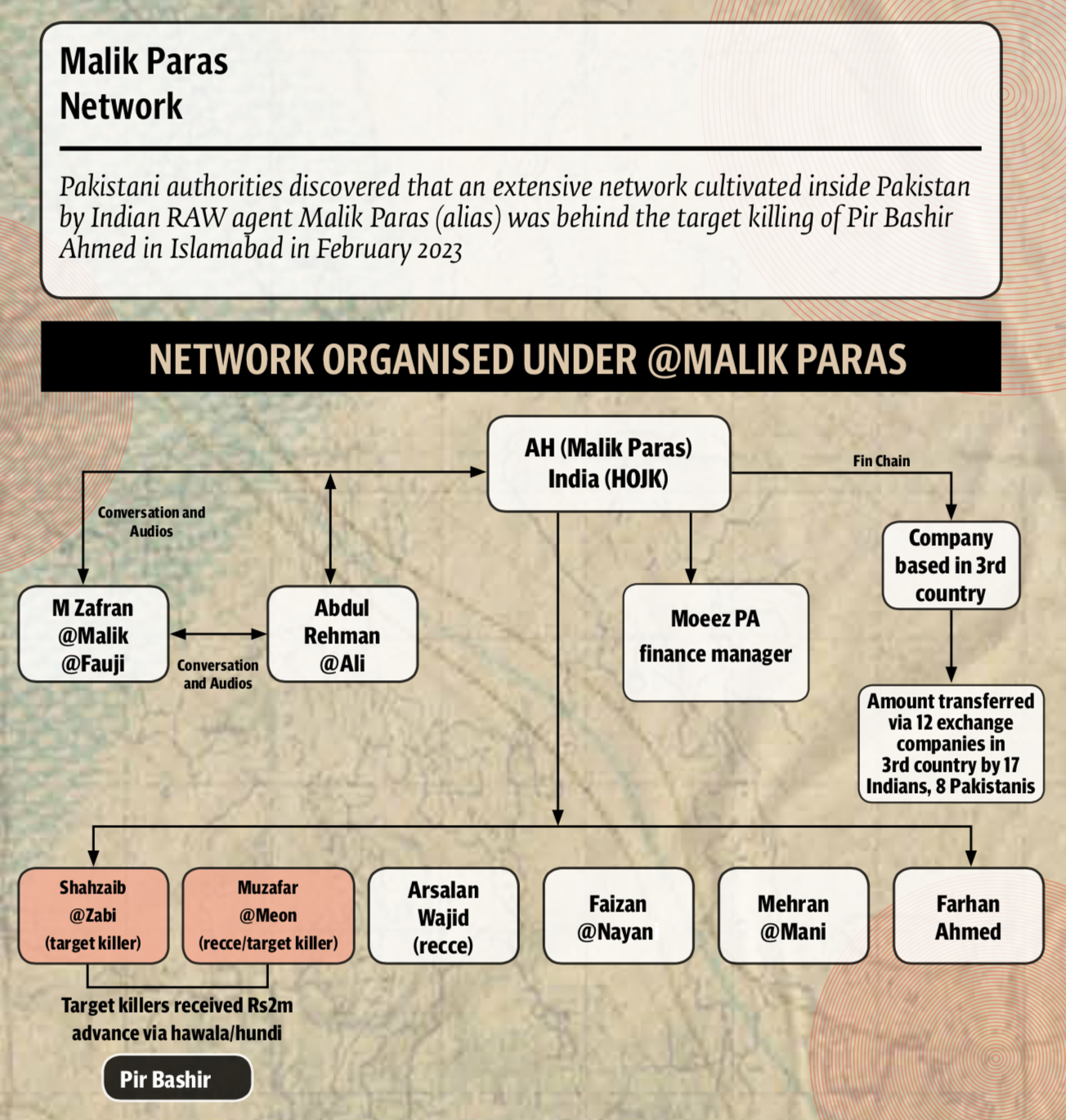 This appears to be the election playbook of BJP, which thrives on anti-Pakistan and anti-Muslim rhetoric. The populist radical-right party espouses the exclusivist doctrine of Hindutva, which promotes a vision of India as a Hindu nation, effectively otherising religious minorities as aliens to India’s cultural ethos.
This appears to be the election playbook of BJP, which thrives on anti-Pakistan and anti-Muslim rhetoric. The populist radical-right party espouses the exclusivist doctrine of Hindutva, which promotes a vision of India as a Hindu nation, effectively otherising religious minorities as aliens to India’s cultural ethos.
A few weeks before the last elections, Modi appeared set for big losses because of an economic stagflation. But what happened next reversed his sagging political fortunes. India carried out a so-called ‘surgical strike’ in Balakot, Khyber-Pakhtunkhwa, purportedly to avenge the killing of 40 Indian paramilitary police in an attack in the Pulwama area of disputed Kashmir region in 2019. Pakistan’s reprisal was quick and befitting, but the war rhetoric helped Modi defy all predictions and regain power riding the wave of hyper-nationalism stirred up by the dangerous confrontation.
Later, India’s own politicians called the Pulwama incident itself into question. West Bengal Chief Minister Mamata Banerjee slammed it as a ‘fake and scripted drama’ which, according to Satya Pal Malik, the last governor of disputed Kashmir state, was used by Modi and the BJP as a ‘clever policy’ to lay the blame on Pakistan, launch a ‘retaliatory strike’, claim credit, and get reelected.
A hyperventilating media, imbued with BJP’s hyper-nationalism, has helped the ruling party in its dangerous pursuits by promoting Modi as a strongman who could not only deal with threats to national security but also make India a great power. And thus the pliant media undermined India’s democratic credentials by turning a blind eye to blatant violations of liberal values by the Modi regime.
“If Modi realises his boats are slipping away during the polls, he will give the dog whistle to Indian media to amplify his image as the strongman who went into Pakistan to kill terrorists,” says Ashok Swain, Professor of Peace and Conflict at Sweden’s Uppsala University.
Changing tack
Fears ran rampant that Modi could stage another Pulwama-like attack for a ‘Balakot 2.0’ to win a third term, but the BJP realised that the cost of such an adventure could far outweigh its benefits. The reprisal for the Balakot strike was a huge humiliation for Delhi as Pakistan not only carried out a daring counter air strike, but also shot down an Indian fighter jet and captured the pilot flying it.
After a cost-benefit analysis, the Modi administration decided to rejig its strategy. “This led to a change in New Delhi’s policy to individually identify and track down its political opponents and critics in other countries and assassinate them by engaging local assassins and terrorists through its intelligence agency,” says Muhammad Ali, an Islamabad based security expert.
Subsequently, RAW took a leaf out of the playbook of Israel and Russia, the two strategic partners of India that have widely employed this transnational assassination strategy. “What stands out with India are the growing indications that both the intensity and geographic scope of these assassinations are increasing. That is, they’re being carried out more frequently, and in more countries,” says Kugelman.
Going rogue
RAW’s involvement is suspected in over 20 murders in Pakistan, but officials have cracked seven such killings and busted the networks involved. Officials unraveled the modus operandi of the RAW networks operating from a third country.
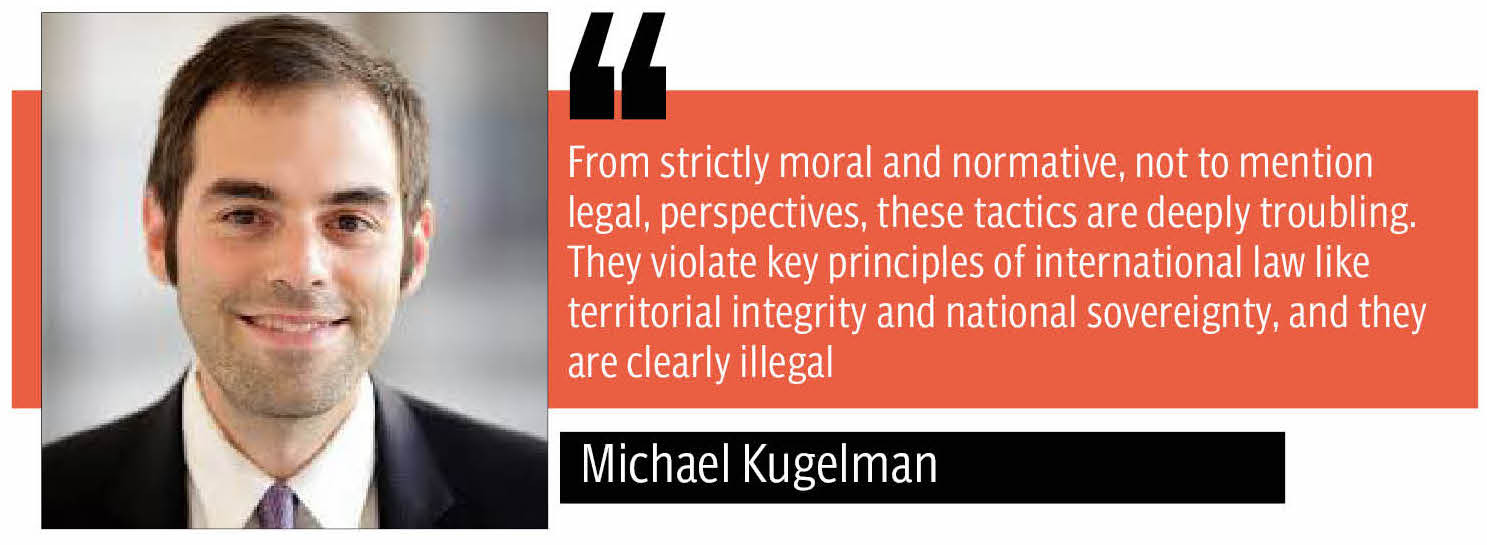 The assassins would be recruited mostly through social media,” says an official privy to investigations. They were hired guns, religious extremists, and members of criminal syndicates, but in some cases, they were recruited from the banned Tehreek-e-Taliban Pakistan (TTP) based in Afghanistan,” the official says.
The assassins would be recruited mostly through social media,” says an official privy to investigations. They were hired guns, religious extremists, and members of criminal syndicates, but in some cases, they were recruited from the banned Tehreek-e-Taliban Pakistan (TTP) based in Afghanistan,” the official says.
“RAW agents provided verified addresses, pictures of targets, weapons, and made multiple payments to hitmen. They employed comprehensive compartmentalisation strategies to segregate different teams’ financiers, locators, and devised detailed exit plans to obscure all potential tracks,” explains the official.
They set up a parallel network for purchase, transportation and delivery of weapons for these transnational murders. They also developed a composite payments mechanism, using people based in a third country and formal banking channels for transactions from abroad.
Preempting hit
Some may call the failure to preempt these assassinations an intelligence lapse. However, officials claim there is no operational RAW network in Pakistan. The assassins were Pakistani nationals or Afghan citizens recruited and handled by RAW ‘sleeper cells’ based in a third country. Not only that, there was also an intelligence forewarning about possible activities of the hostile agencies.
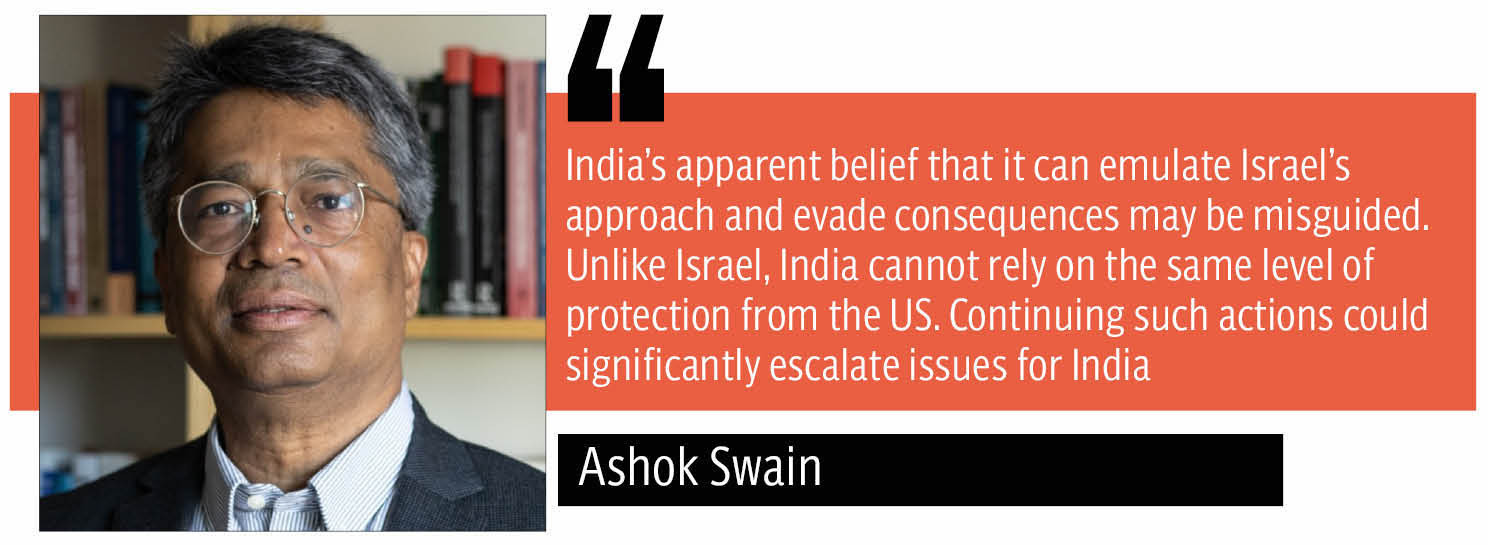
“It’s baffling that Indian sleeper cells could operate within a country without detection by its intelligence agencies. These agencies should have been proactive in thwarting such plans and apprehending those involved before they could commit such crimes. While Canada and the US might not have anticipated India’s actions on their soil, we should have been better prepared,” says Prof Talat Wizarat, former chairperson of International Relations Department at Karachi University.
But is it possible to preempt extrajudicial murder of common citizens by a hostile agency?
“No. It’s not,” says Maj Gen (retd) Inamul Haq. “Look at the intelligence agencies of the most developed nations. Technologically and resource-wise, they are far superior, but still they couldn’t prevent major terrorist activities on their soil,” says Inam, referring to the 9/11 attacks in the US.
Mossad and CIA are the world’s most resourceful spy agencies, but they failed to preempt some major attacks. Similarly, Canada is part of the ‘Five Eyes’ intelligence alliance. Members of this coalition, which also includes the US, the UK, Australia, and New Zealand, share a broad range of intelligence with one another in one of the world’s most unified multilateral arrangements. Yet, they couldn’t prevent the murder of pro-Khalistan activist Hardeep Singh Nijjar by Indian agents on Canadian soil.
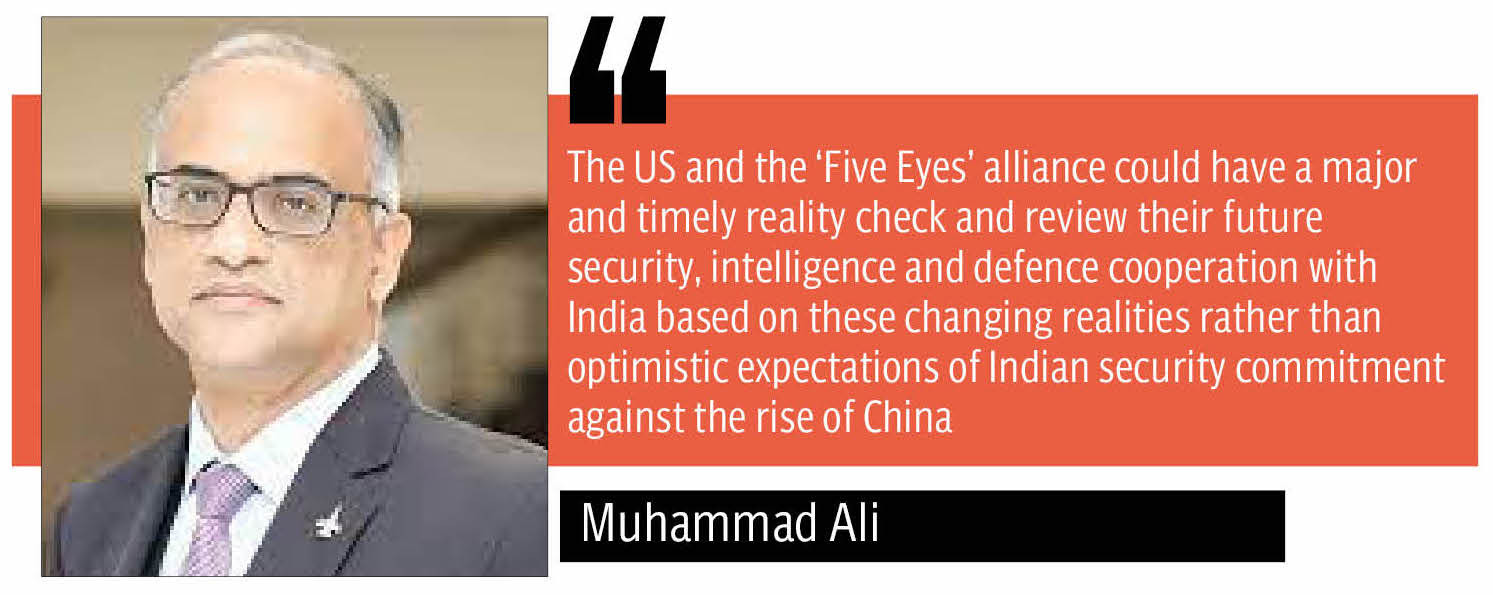 In Pakistan’s case, none of the assassinated individuals was a High Value Target, according to officials. They were common men, lived a normal life, and even if some of them have had past association with any defunct organisation, they were deradicalised and reintegrated into society. Still, the assassins and their facilitators have been arrested in almost all the cases.
In Pakistan’s case, none of the assassinated individuals was a High Value Target, according to officials. They were common men, lived a normal life, and even if some of them have had past association with any defunct organisation, they were deradicalised and reintegrated into society. Still, the assassins and their facilitators have been arrested in almost all the cases.
“Overall, our intelligence setups have so far served the nation well despite resource and other constraints. They have been able to successfully protect our assets of national importance,” says Inam but hastens to add that “intelligence agencies the world over learn lessons from the changing tactics and actions of their adversaries.”
State terrorism
States cannot use force in the territory of another state under any pretext. Targeted killings conducted on the soil of another state raise sovereignty concerns. India’s assassination campaign in various countries in general, and in Pakistan in particular, violates the UN Charter, Universal Declaration of Human Rights, and International Covenant on Civil and Political Rights.
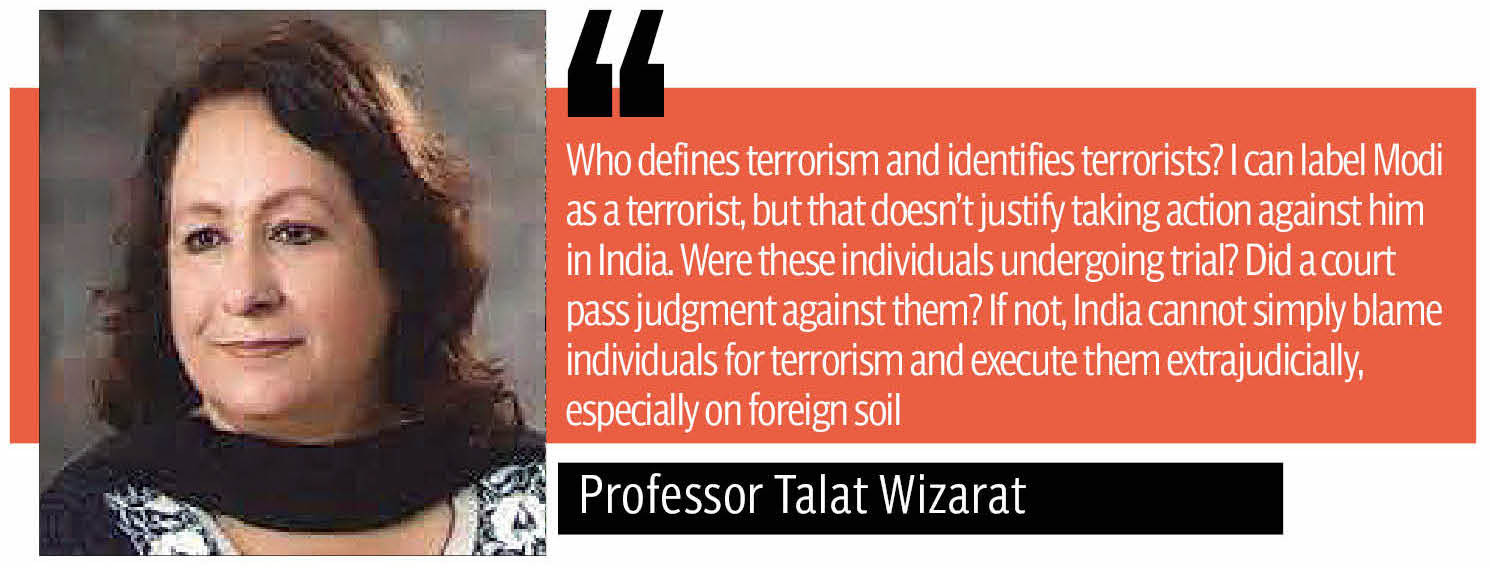 This dangerous strategy tends to set a new normal that could potentially spell chaos in the world. “From strictly moral and normative, not to mention legal, perspectives, these tactics are deeply troubling. They violate key principles of international law like territorial integrity and national sovereignty, and they are clearly illegal,” says Kugelman. Wizarat takes it a notch up: “India’s actions amount to terrorism.”
This dangerous strategy tends to set a new normal that could potentially spell chaos in the world. “From strictly moral and normative, not to mention legal, perspectives, these tactics are deeply troubling. They violate key principles of international law like territorial integrity and national sovereignty, and they are clearly illegal,” says Kugelman. Wizarat takes it a notch up: “India’s actions amount to terrorism.”
Old mantra
Under Modi, India has pursued a two-dimensional strategy to deal with Pakistan. On the tactical level, it ratcheted up sabre-rattling through so-called surgical strikes. And on the diplomatic level, Delhi mounted a campaign to make Pakistan a ‘pariah state’ in the eyes of international community by maligning it as ‘state sponsor of terrorism’.
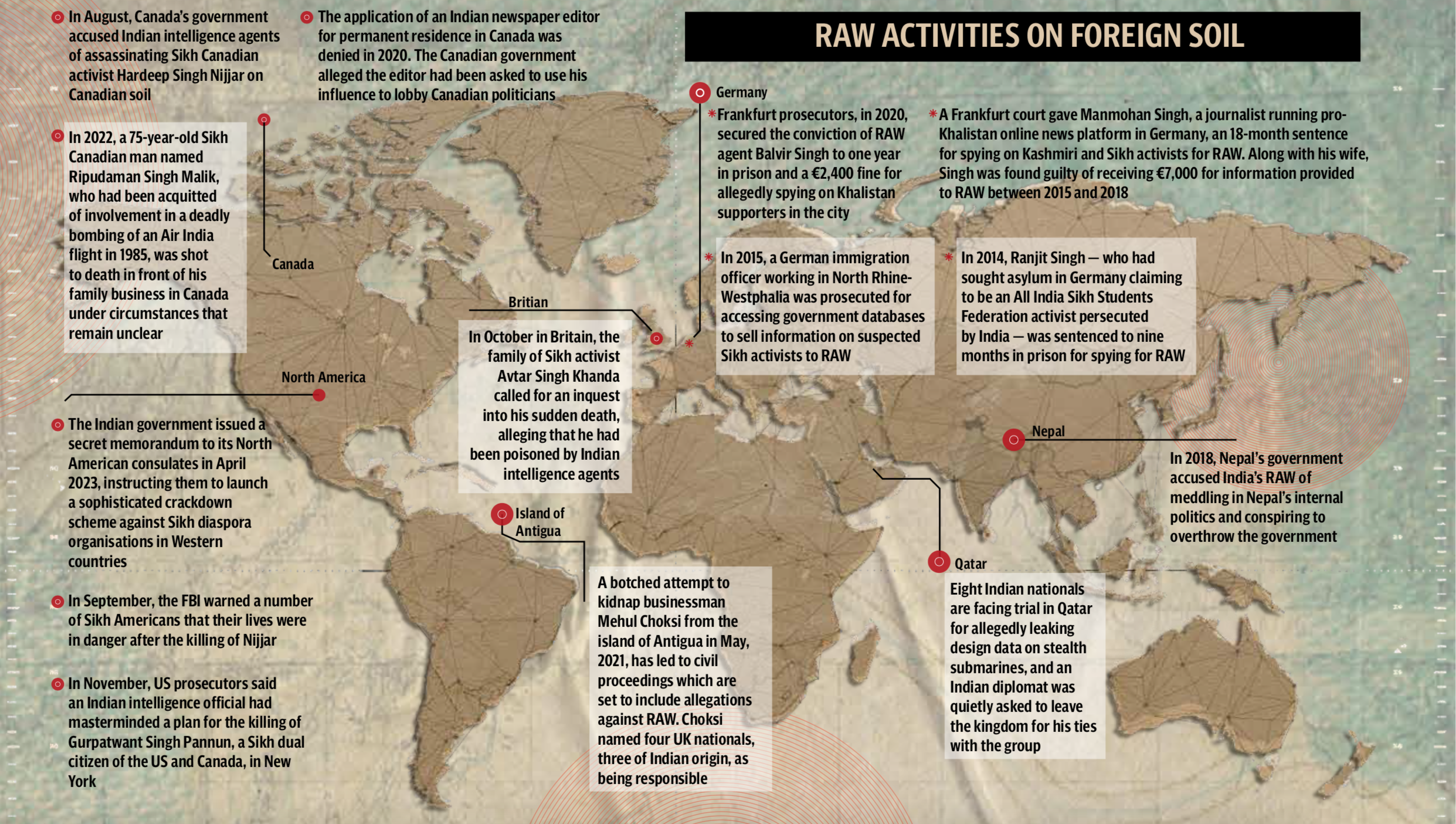 Perhaps this is why Kugelman doesn’t foresee many repercussions for India after the Guardian expose. Instead he believes there could be problems for Pakistan because most assassinations have taken out anti-India elements. “Indian officials can pivot and say, ‘Look, the bigger question is, why was Pakistan harbouring these terrorists to begin with?’ And the implication becomes that India is justified in going after threats when Pakistan refuses to do so,” he says.
Perhaps this is why Kugelman doesn’t foresee many repercussions for India after the Guardian expose. Instead he believes there could be problems for Pakistan because most assassinations have taken out anti-India elements. “Indian officials can pivot and say, ‘Look, the bigger question is, why was Pakistan harbouring these terrorists to begin with?’ And the implication becomes that India is justified in going after threats when Pakistan refuses to do so,” he says.
But who gives India the right to act as judge, jury, and executioner.
“Who defines terrorism and identifies terrorists? I can label Modi as a terrorist, but that doesn’t justify taking action against him in India. Were these individuals undergoing trial? Did a court pass judgment against them? If not, India cannot simply blame individuals for terrorism and execute them extrajudicially, especially on foreign soil,” says Wizarat.
Free passes
Modi was once a political pariah, blacklisted in the US for the 2002 Muslim pogrom under his watch in India’s Gujarat state. But then changing geopolitics priorities endeared him to the US and its officials started thinking up new adjectives to appease Modi. Donald Trump praised him as an ‘exceptional leader’, Mike Pence hailed him as a ‘larger than life figure’, and Biden’s Commerce Secretary Gina Raimondo called him an ‘unbelievable visionary’. And then to top it all, Biden’s description of US ties with India as ‘one of the most defining relationships’ in 21st century filled Modi with a false sense of inevitability.
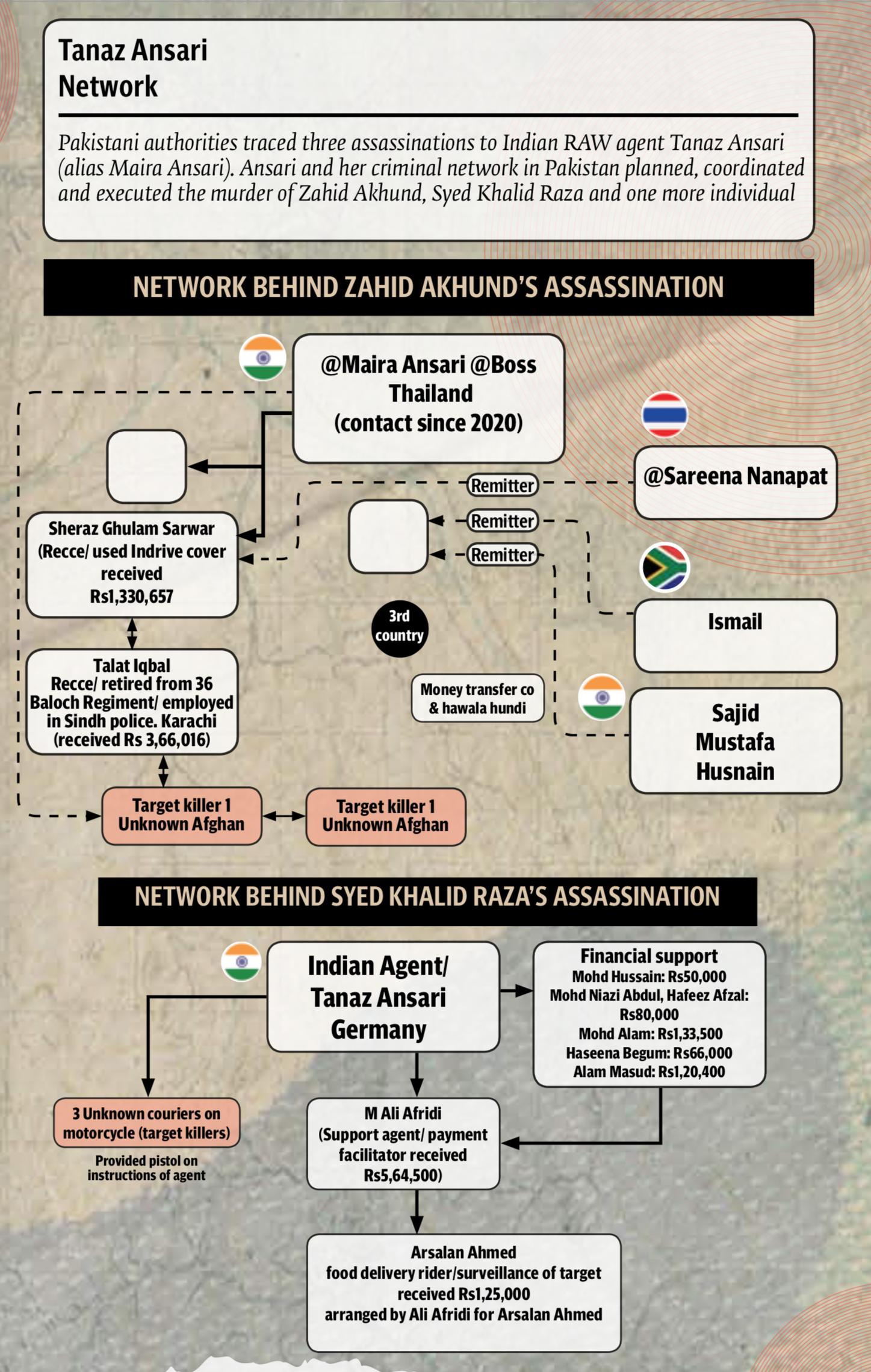 “India’s apparent belief that it can emulate Israel’s approach and evade consequences may be misguided. Unlike Israel, India cannot rely on the same level of protection from the US. Continuing such actions could significantly escalate issues for India,” says Ashok.
“India’s apparent belief that it can emulate Israel’s approach and evade consequences may be misguided. Unlike Israel, India cannot rely on the same level of protection from the US. Continuing such actions could significantly escalate issues for India,” says Ashok.
Ali agrees. “The US and the ‘Five Eyes’ alliance could have a major and timely reality check and review their future security, intelligence and defence cooperation with India based on these changing realities rather than optimistic expectations of Indian security commitment against the rise of China,” he says.
But Kugelman believes India would continue to get away with such transnational actions as long as they don’t hurt its Western allies. “India isn’t taking global leniency for granted. It’s simply being practical, in that it knows that this leniency is unlikely to change, and the free passes will continue — at least so long as India continues to enjoy the global status of a critical strategic actor and market. And I don’t see that status changing anytime soon,” he says.
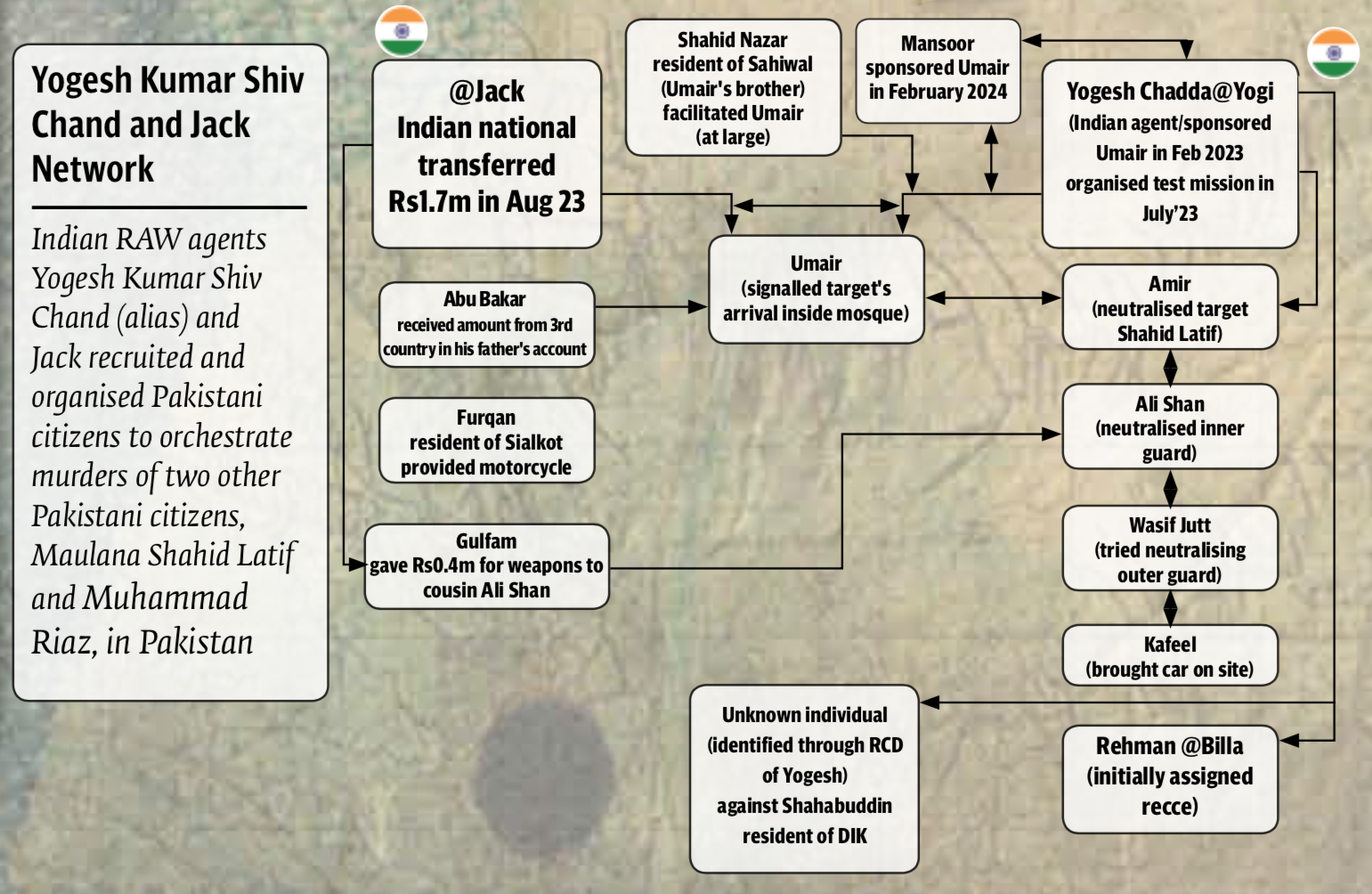 Wizarat, however, fears that if India’s actions go unchecked, it could encourage other nations to resort to similar methods of state terrorism, leading to widespread lawlessness and chaos globally.
Wizarat, however, fears that if India’s actions go unchecked, it could encourage other nations to resort to similar methods of state terrorism, leading to widespread lawlessness and chaos globally.
Wake-up call
Delhi has long been carrying out what it calls ‘preemptive assassination’ of the activists it perceives as a threat to its national security. Its South Asian neighbours, particularly Pakistan, Sri Lanka, Bangladesh, Nepal, and the Maldives, have all accused RAW of involvement with outlawed groups that have carried out acts of violence.
India’s failure to secure the extradition of a US citizen allegedly involved in the 2008 Mumbai attacks spurred RAW to go rogue globally and assassinate dissidents, critics, or those it perceived as a security threat.
The Indian agency was finally drawn out of shadows last year when it assassinated Nijjar on Canadian soil. Delhi was in denial – but not for long. The US ambassador in Ottawa was quick to confirm there was shared intelligence among the ‘Five Eyes’ partners that helped Canada unravel Nijjar’s murder mystery.
This was followed by another explosive revelation. The FBI thwarted an Indian plot to assassinate another pro-Khalistan Sikh leader on American soil. It is learnt that the US informed some allies about the plot following Nijjar’s murder. Both Prime Minister Justin Trudeau and President Biden took up the blatant violation of sovereignty by Indian agents with Delhi at the top level.
“India has a history of conducting such operations even before Modi’s tenure. However, it’s undeniable that these activities have escalated during Modi’s time in office. Such incidents have occurred even in countries like Canada. There are reports of Sikhs facing threats in Australia, and there was an attempted incident in the US,” says Ashok.
The incidents in Canada and the US were a ‘wake-up call’ that India is willing to engage in transnational repression on the soil of its closest partners, says Kugelman. “The Biden administration as I understand it has laid down red lines— in effect, ‘this can’t happen again’ — but on the whole the US has taken few steps against India in retaliation. Canada has taken some retaliatory steps after its controversy with India, but that’s more because of a relationship that on the whole is much more fragile than is the US-India relationship.”
A lack of punitive measures from Washington and Ottawa may have emboldened Modi as RAW started acting with impunity. India may respect the red-lines drawn by the US and its Western allies to avoid diplomatic consequences, but it would continue to carry out transnational terrorism elsewhere in the world. “There are indications that India may have halted such activities in Western countries following backlash, but it might continue in Pakistan due to its perceived political advantages for Indian leadership,” says Ashok.
But if the international community doesn’t intervene now, it will further encourage India in its transnational murder campaign. “The Indian defence minister’s open declaration of future operations is a clear warning sign. It’s absolutely crucial to recognise that these actions constitute state terrorism and demand concerted action,” says Wizarat.
The Indian actions are undoubtedly a blatant violation of international law. However, it’s sad but true that international relations are driven not by moral but strategic calculations. The US and its Western allies may be avoiding to confront India on RAW’s rogue behaviour for fear it could alienate a country they are supporting to contain China geopolitically. However, this leniency would amount to complacency and give India’s death squads a free hand to imperil regional peace. If not checked, it would set a dangerous precedent and threaten the rule-based international order that the US and its allies have built to preserve the conditions needed for peace and prosperity in the world.
Courtesy: T-Magazine








